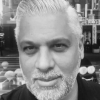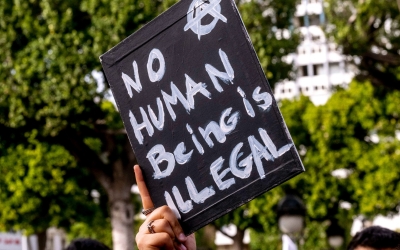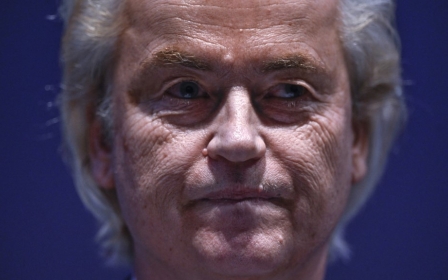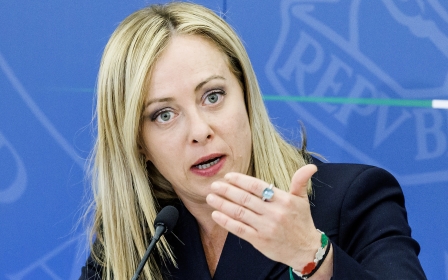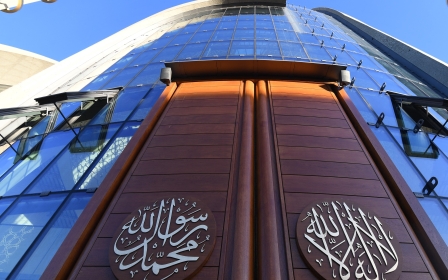EU elections: How the far right are shaping governments across Europe
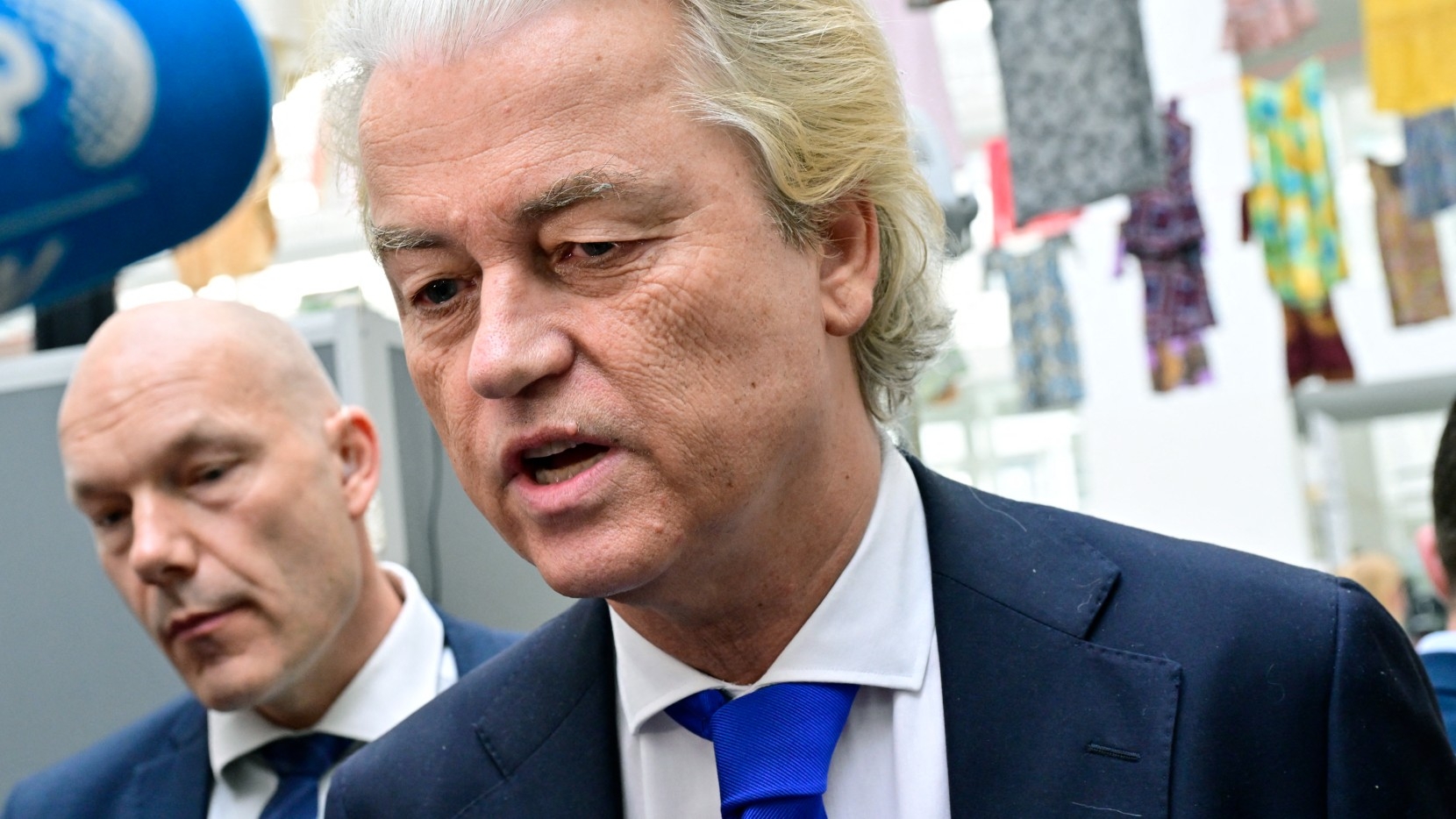
Yet another European Union country, the Netherlands, recently took a sharp turn to the right. After six months of negotiations following the 2023 general elections, Geert Wilders, leader of the far-right Party for Freedom, notorious for his Islamophobic views, reached a deal with three centre-right parties to form a government.
The Netherlands is thus on its way to joining the expanding ranks of EU members that are either led by far-right parties, have them as ruling coalition partners, or rely on them for parliamentary support, such as Italy, Sweden, Finland and Hungary.
Significantly, the Dutch deal was announced just a few weeks before this month’s EU elections, which will have an impact on the European bloc's policies for the next five years, including who will run the European Commission, the EU’s powerful executive body.
Polls augur a surge for far-right parties, mirroring developments in the Netherlands, with two political groups in the European Parliament meeting that definition: the European Conservatives and Reformists (ECR), and Identity and Democracy (ID).
According to Politico’s “poll of polls”, the ECR and ID combined are projected to win more than 140 seats in the 720-strong assembly, up from the current 127.
New MEE newsletter: Jerusalem Dispatch
Sign up to get the latest insights and analysis on Israel-Palestine, alongside Turkey Unpacked and other MEE newsletters
But these numbers do not capture the extent of the potential ECR and ID influence, as the biggest force in European politics - the centre-right European People’s Party (EPP), projected to win 170 seats - has increasingly cooperated with parts of the far right, especially the ECR, at the national level and in the European Parliament.
European far-right parties diverge widely on a range of issues. Italian Prime Minister Giorgia Meloni, who leads the ECR party at the European level, is a staunch supporter of Ukraine, while the French National Rally and Alternative for Germany (AfD) - both parts of the ID party (until AfD was expelled late last month over its leading member’s comments on the Nazi SS) are seen as more friendly to Moscow.
Fortress Europe
What unites all of these parties, however, is their ethnocentric view of Europe as a fortress where white, Christian people are entitled to innate privileges over those of a different, particularly non-white, background; their hostility towards migration and Islam; and varying degrees of social conservatism.
In terms of foreign policy, such views translate into staunch support for Israel, along with hostility to the Palestinian cause and any players seen as sympathetic to, or representative of, political Islam, such as Qatar, Turkey, Iran and the transnational Muslim Brotherhood.
The growing political heft of the far right has led to its stealthy normalisation by the traditional centre-right
Such views also express themselves through support for actors in the Muslim world seen as a bulwark against these allegedly destructive forces, such as the UAE and Saudi Arabia, as seen through voting patterns in the outgoing European Parliament on matters pertaining to the Gulf.
The growing political heft of the far right has led to its stealthy normalisation and mainstreaming by the traditional centre-right, embodied by the EPP. The president of the outgoing European Commission, Ursula von der Leyen, who is seeking a second term, and her EPP have sought to cultivate Meloni’s support, partly out of political opportunism and partly because of a sincere convergence of views.
Of note, Von der Leyen has distinguished herself as one of the most staunchly pro-Israel EU officials.
Migration policy
In less conspicuous but more profoundly consequential ways, the capture of the EU by the far-right agenda is illustrated by its evolving migration policy, particularly its rejection of non-white migration.
This essentially consists of bribing client states in North Africa to prevent migrants from coming to the EU. A recent investigation by Lighthouse Reports details how EU funds are used to commit human rights abuses against sub-Saharan communities, under the guise of “migration management” deals.
This strategy enjoys backing across the political spectrum in the EU, among both conservatives and liberals. The extent of the mainstreaming of this right-wing agenda has been so notable that it prompted the EU commissioner for jobs and social rights, Nicolas Schmit, to openly challenge Von der Leyen over the efficacy, transparency and human rights compliance of these EU-promoted and funded deals.
However, with the way the political winds are blowing in Europe, it is unlikely that such policies will be reconsidered.
Wilders’s victory in the Netherlands points in the opposite direction. The coalition deal not only pledges to institute the “strictest-ever” asylum policy, but also foresees measures that would alienate the existing Muslim population, such as a commitment to consider moving the Dutch embassy in Israel to Jerusalem.
Until recently, Wilders was seen as an eccentric pariah in Brussels. But that may change. Once a Ukraine skeptic, he pledged continued support for Ukraine as part of the new government deal.
As Dutch political scientist Cas Mudde noted on X (formerly Twitter): “Like Meloni, Wilders has learned that support for Ukraine has become the new litmus test for ‘acceptability’ within EU. Agree to that and you have more space to weaken liberal democracy at home.”
One could add that it also provides more space to shape EU policy in other areas, such as the Middle East. This will please the right-wing government in Israel and authoritarian rulers across the Arab world.
The views expressed in this article belong to the author and do not necessarily reflect the editorial policy of Middle East Eye.
Middle East Eye delivers independent and unrivalled coverage and analysis of the Middle East, North Africa and beyond. To learn more about republishing this content and the associated fees, please fill out this form. More about MEE can be found here.


